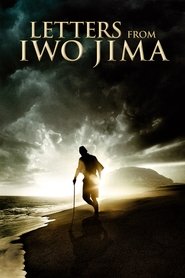Quite clearly superior to Flags of Our Fathers, and one of most original WW2 movies I've yet seen thus far as well. I was particularly fond of the soundtrack's harmonic direction but felt it was let down by the 'Eastwoodian' soldier melodrama in the final act. And, to a certain extent, that this story was made—or had to be made—by an American.
“Letters,” which observes the lives and deaths of Japanese soldiers in the battle for Iwo Jima, similarly adheres to some of the conventions of the genre even as it quietly dismantles them. It is, unapologetically and even humbly, true to the durable tenets of the war-movie tradition, but it is also utterly original, even radical in its methods and insights. […] It is hard to think of another war movie that has gone so deeply, so sensitively, into the mind-set of the opposing side.
[…]
An army needs personnel, not personalities, and one of the functions of the art and literature of war — especially on film, which exists to consecrate the human face — is to compensate for this forced anonymity by emphasizing the flesh-and-blood individuality of the combatants. Think of the classic Hollywood platoon picture, with its carefully distributed farm boys and city kids, its quota of blowhards and bookworms, all superintended by a wise, crusty commander. Even as they approach stereotype, those characters give names, faces and identities to men who have gone down in history mainly as statistics.
— A.O. Scott (The New York Times)
The longings on the part of Saigo and Kuribayashi and others for their families is sometimes too blandly rendered in flashback. And perhaps too much ideological weight is placed on those longings. Love of family, after all, is not in itself, a proof of goodness. (If it were, some of the biggest butchers in history would be exempt from blame.) WWII movies were often padded with scenes of American soldiers reciting letters to sweethearts and dear old Mom, and transposing that ploy to the Japanese side doesn't entirely eradicate its banality.
— Peter Rainer (Christian Science Monitor)

